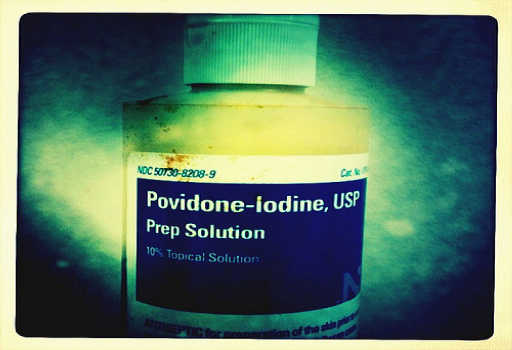Home Remedies and Herbs for Wounds
What is Wounds?
Wounds refer to any damage to living tissue. The term often refers to skin wounds in which the skin is broken, cut, or burned. Wounds come in many shapes and sizes and vary in severity. Types of wounds include:1
- Puncture wounds - Puncture wounds occur when something sharp jabs into the skin, such as if you step on a nail. These types of wounds are at great risk of infection.2
- Scrapes - Scrapes occur when an area of the skin rubs off. They can bleed and become infected.3
- Cuts - A cut refers to a break or opening in the skin. It’s also sometimes called a laceration, which is jagged, irregular cut.1,4
- Incisions - An incision is a controlled cut, such as those made during surgery.
- Ulcers - Ulcers refer to an open sore. They can occur internally, such as in the stomach, but they can also appear on the skin due to pressure or rubbing, called a pressure ulcer.5
Since the skin acts as a natural barrier against infection, wounds can easily get infected if not treated properly. One type of infection acquired through wounds is tetanus, which results in painful muscular contractions.6 Minor wounds can be treated at home by washing the sore with clean water. Seek medical attention for cuts greater than a half inch long or deep enough to show fat, muscle, or bone, or for any wounds that are the result of an animal bite.1
What Causes Wounds?
Wounds are caused by any sort of trauma. This can include a cut, puncture, or blow to any area of the body. It can also include damage from diabetic ulcers or burns.1 Wounds are often the result of an accident, but intentional procedures like surgery also produce wounds that take special care to treat. Other wound causes include chemical burns, heat burns, radiation, and frostbite.1 You are most at risk of developing wounds if you:1
- Are an older individual
- Use steroids
- Are in poor health
- Have diabetes
- Smoke
- Are undergoing chemo or radiation therapy
Wounds Symptoms
Wounds symptoms vary depending on how severe the wound is and if the wound has become infected. Most wounds are accompanied by pain, but they may also bleed, swell, or affect the range of motion.1 Infected wounds may produce pus and have a foul smell.1 In severe cases, infections may cause fever.1 Various wound herbal remedies can help ease wound symptoms and facilitate healing.
References
- http://umm.edu/health/medical/altmed/condition/wounds
- http://www.mayoclinic.org/first-aid/first-aid-puncture-wounds/basics/art-20056665
- http://umm.edu/health/medical/ency/articles/scrape
- http://umm.edu/health/medical/ency/articles/cuts-and-puncture-wounds
- http://umm.edu/health/medical/ency/articles/pressure-ulcer
- https://www.cdc.gov/tetanus/clinicians.html
Home remedies, herbs, and food supplements for Wounds
Maggots is the most effective natural product for Wounds CuresDecoded worldwide community recommends

Maggots Product 1 of 158
Effectiveness Score
Method of use: Topical

Sangre de Drago Product 2 of 158
Effectiveness Score
Method of use: Topical

Moringa Product 3 of 158
Effectiveness Score
Method of use: Oral

Tian Qi Product 4 of 158
Effectiveness Score
Method of use: Topical

Birthwort Product 5 of 158
Effectiveness Score
Method of use: Topical

Woundwort Product 6 of 158
Effectiveness Score
Method of use: Topical

Orange Blossom Honey Product 7 of 158
Effectiveness Score
Method of use: Topical

Arrowroot Product 8 of 158
Effectiveness Score
Method of use: Eat, Topical

Povidone Iodine Product 9 of 158
Effectiveness Score
Method of use: Topical
